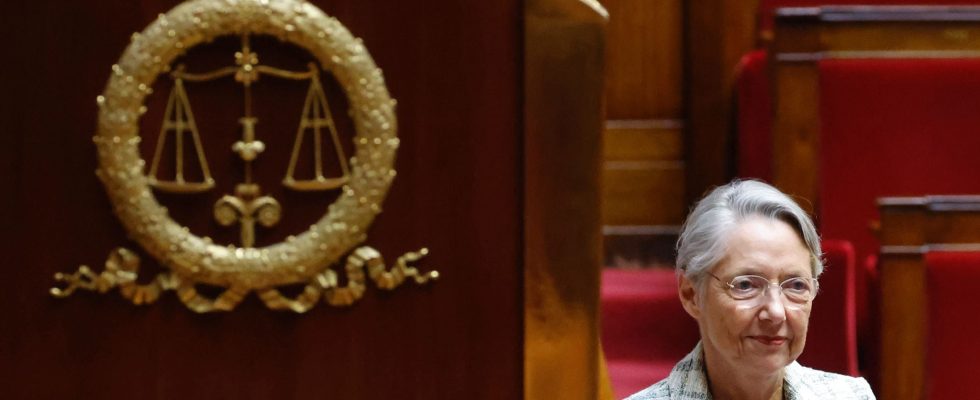From their ministerial office, they move to the benches of the National Assembly. Monday February 12, a month after a turbulent reshuffle, nine ex-ministers (seven from the Renaissance party, one MoDem and one Horizon) returned as “simple” deputies.
Starting with the former Prime Minister, Elisabeth Borne, who has the particularity of never having sat in the hemicycle, outside the benches reserved for members of the government.
Elected for the first time to the National Assembly in 2022, she started as Minister for Transport (2017-2019) then as Minister for the Ecological and Inclusive Transition (2019-2020) under the governments of Edouard Philippe. She was subsequently in charge of Labor, from 2020 to 2022, when Jean Castex took the reins of the executive.
During a trip to her Calvados constituency on February 8, the former head of government said she was “happy to find deputies with whom [elle] has been working since 2017” and assured that she wanted to “complete her mandate as a deputy”, in which she wishes to invest “fully”. “I have never been fascinated by power”, she adds, at microphone France 3 Normandy. A response to those who already see it at the Constitutional Council or in the private sector.
Terminal at the Foreign Affairs Committee
Like her, no less than fifteen former heads of government have returned to the Assembly in recent decades – like Manuel Valls, Laurent Fabius, and Alain Juppé. Elisabeth Borne will attend the meeting of the Renaissance group on Tuesday and then the Questions to the Government session. On a daily basis, she will swell the ranks of the Foreign Affairs Committee.
A group which also includes another ghost: the former Minister of Solidarity and Health, government spokesperson and then Minister Delegate in charge of Democratic Renewal, Olivier Véran. The latter, on the other hand, is more familiar with the corridors of the Palais-Bourbon since he served there from 2012 to 2015, in the ranks of the Socialist Party.
In addition, seven other former ministers regained their mandate as deputies, one month after their departure from the executive. They are Bérangère Couillard (in charge of Gender Equality), Olivier Dussopt (Labour), Clément Beaune (Transport), Carole Grandjean (Professional Education and Training), Philippe Vigier (Overseas), Agnès Firmin- Le Bodo (Health) and Olivier Becht (Foreign trade).
But at the Palais-Bourbon, some have little faith in their involvement in the coming months. “I feel they are very absent, I think that they will come very little, and that they will all leave for other skies as soon as they can,” an executive from the Renaissance group has already anticipated to AFP .
Towards a new movement?
So, according to The Parisian, the president of the Renaissance group, Sylvain Maillard, would have suggested to them that “if they do not intend to sit all the time”, the best would be to aim for a “commission with little text”. In other words, avoid those of Laws, Economic Affairs or Social Affairs.
If Clément Beaune is – despite everything – aiming for the Laws and European Affairs committees, Olivier Dussopt wants to join the Defense committee. The latter will find, on the benches of the hemicycle, 21 Territoire du Progress deputies (his micro-party) with whom he worked as a minister, we can read in The Parisian.
Note that these newly arrived deputies in the Assembly are the vast majority from the left wing of the government. The opportunity to come together to structure a new movement? On February 8, in a press release, MP Stella Dupont – one of the figures of the left wing of the Renaissance group – expressed her desire to work to “strengthen [la] ability to [s’] organize”, particularly around “social and environmental sensitivity”. “My regrets are confirmed regarding the assumed decision to position this Government to the right of the political spectrum”, she regrets.
As a reminder, Jacques Chirac, on his return to the Assembly in 1976 after his time at Matignon, launched the Rally for the Republic (RPR) with the support of some of the right-wing deputies.
